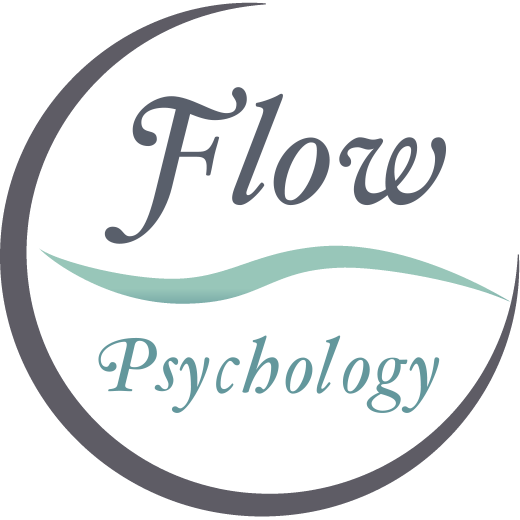Often, medication for anxiety can be used along with therapy to help individuals struggling with overwhelming, intense anxiety. Although the treatments can be long-term, brief psychodynamic therapy has also been reported to be an effective method of treating anxiety. Although psychotherapy is generally used as the first-line treatment for anxiety, some individuals may benefit from combining medications with psychotherapy. Psychological treatment options for anxiety include both individual and group-based therapies.
Various types of psychotherapy, also known as talk therapy, are commonly used as successful treatments for anxiety. Known as talk therapy or psychological counselling, psychotherapy involves working with a therapist to reduce symptoms of your anxiety. Psychotherapy, or talk therapy, involves an individual talking with a trained therapist, who may be able to help him or her understand specific feelings and behaviours. Psychodynamic therapy involves the person speaking freely in response to the therapist’s questions, allowing the therapist to recognize patterns in behaviours and thoughts.
Psychodynamic Therapy The purpose of psychodynamic therapy is to resolve unconscious feelings and desires that may be the source of your anxiety. Most contemporary types of therapy target negative thoughts and avoidance behaviours in order to help you cope with your anxiety. Research studies show that psychological therapies, like CBT, are far more effective than medications at managing anxiety disorders over the long term.
Calm your worrying with CBT therapy.
A systematic review and meta-analysis on CBT found the effects of CBT to show a reliable effectiveness in the reduction of anxiety symptoms among young people with ASD. For instance, in a randomized controlled trial involving 488 children with anxiety disorders, CBT, either alone or combined with antidepressant treatment, was associated with a significant decrease in the severity of anxiety symptoms, compared with the no-treatment comparison group (Walkup et al., 2008). Interestingly, combined therapy was significantly more effective than cbt therapy alone–which makes sense given that psychological symptoms in parents are associated with treatment outcomes in children with anxiety (Berman, Weems, & Silverman, 2000 ). Data from 101 clinical trials compares a few different types of talk therapies, finding individual CBT the most effective.
No evidence showed that combination therapies were better.
Few of the 101 clinical trials looked at the combination of medications and talk therapy, and no evidence showed the combination therapies were better than talking therapy alone. For example, one study that compared CBT therapy and transdiagnostic relaxation training for patients with anxiety disorders found that both treatments were similarly helpful, even though the relaxation training was associated with higher attrition rates.38 Results regarding the effectiveness of cognitive therapies for anxiety disorders are also limited by the low number of studies examining cognitive methods separately from exposure.
Other studies have suggested that relaxation is similarly effective to cognitive therapy for improving symptoms in patients with panic disorders both after treatment and at follow-up.53,54 Cognitive techniques in social anxiety are commonly used to treat social anxiety in order to help patients identify and modify the cognitive factors supporting social anxiety.
Although antidepressants are the most frequently used treatment for social anxiety disorder, emerging research suggests that cognitive behaviour therapy (CBT) is more effective, and, unlike medications, may produce lasting effects long after therapy is stopped. Therapy interventions, such as cognitive-behavioural therapy (CBT), interpersonal therapy (IPT), psychodynamic psychotherapy, and exposure therapy, are proven, research-based treatments for helping individuals with anxiety disorders control their mental health.
Dialectical behavioural therapy (DBT) is one type of CBT known to be very effective.

DBT is very good at helping individuals manage anxiety and a variety of other challenges. Dialectical Behavior Therapy (DBT) DBT, a particular type of CBT, was initially developed as a treatment for borderline personality disorder (BPD). Originally used to treat borderline personality disorder (BPD), DBT is now used for various conditions, including anxiety. Dialectical Behavioral Therapy involves one-on-one and group therapies for the purpose of learning mindfulness, along with skills to interact effectively, tolerate discomfort and regulate emotions.
Therapy is a form of treatment designed to help address a mental or emotional problem. A form of therapy with an established track record, exposure therapy is a process to decrease the response of fear and anxiety. CBT can take a variety of forms, and exposure therapy is generally reported to be very successful in decreasing anxiety. CBT involves exposure therapy, whereby you gradually meet an object or situation that is triggering your anxiety, so you gain confidence in handling the situation and symptoms of anxiety.
There is an abundance of information about cognitive-behavioural therapies (TCBs) and how they are used, with whole books dedicated to the description of CBT-based therapies for each particular anxiety disorder. Noz begins by describing two of the most widely used CBT treatment methods (exposure and cognitive therapies), followed by a review of empirical literature investigating the effectiveness and efficacy of these methods for treating each anxiety disorder. In a recent study on long-term outcomes with CBT and psychodynamic therapies, patients with social anxiety reported 40% remission rates with either treatment, suggesting that both CBT and psychoanalysis are effective treatments for anxiety disorders as well as other mental disorders.
Acceptance and Commitment Therapy (ACT)
(ACT) is also an effective treatment for anxiety and associated disorders. Acceptance and Commitment Therapy (ACT) ACT encourages you to accept thoughts and feelings as the appropriate responses to your circumstances. Known as ACT, exposure therapy uses the strategies of acceptance and mindfulness (living in the present moment and experiencing things without judgement), together with commitment and behavioural changes, as ways of dealing with undesirable thoughts, feelings, and sensations.
Cognitive-behavioural therapy is also an effective treatment for a broad variety of mental health conditions, including major depression, autism spectrum disorders (ASD), and mood disorders. A 2018 paper indicates that psychodynamic therapies are effective for treating depressive disorders, BPD, and anxiety.



